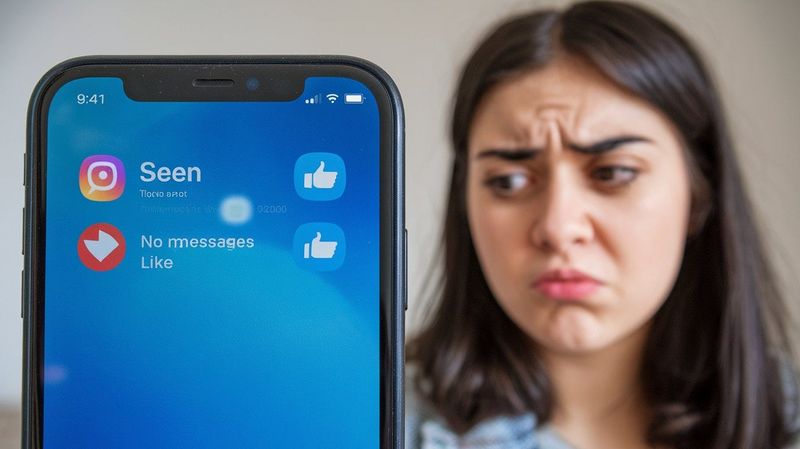Remember when dating was just ‘going steady’ or ‘seeing someone’? Those simple days are long gone! Today’s dating world is filled with confusing Gen Z terminology that can leave anyone over 30 scratching their head.
From casual non-relationships to digital disappearing acts, these terms capture the complicated nature of modern romance in ways that might make you feel ancient.
1. Situationship
You’re texting every day. You’re sleeping together. You’ve met each other’s friends. But are you dating? Nope—you’re in a situationship!
This frustrating gray area has become the default for many young daters who avoid labels like they’re allergic. Neither person wants to have ‘the talk,’ so both drift in relationship limbo for months.
The situationship offers all the emotional investment of a relationship with none of the security or commitment. It’s basically dating’s version of a temp job—all the work without the benefits or stability.
2. Ghosting
Tuesday: passionate texts about future plans. Wednesday: complete radio silence. Welcome to ghosting—the coward’s exit strategy of modern dating.
Instead of having an uncomfortable breakup conversation, the ghoster simply vanishes. No explanation, no closure, just digital disappearance. Your texts turn from blue to gray as you wonder what you possibly did wrong.
The worst part? Many Gen Z daters consider ghosting a perfectly acceptable way to end things. ‘If we’ve only been on three dates, I don’t owe them anything,’ they’ll argue, while older generations clutch their pearls in horror.
3. Breadcrumbing
‘Hey stranger’ texts at 11pm. Random likes on your Instagram post from three years ago. The occasional ‘we should hang out sometime’ that never materializes into actual plans. Sound familiar?
Breadcrumbing is the art of dropping just enough attention crumbs to keep someone interested without ever serving a full meal of commitment. The breadcrumber knows exactly what they’re doing—keeping you as an option while they explore others.
This manipulative tactic thrives in the age of digital dating where a simple text takes seconds but creates hours of false hope for the recipient.
4. Orbiting
They’ve stopped responding to your texts. They declined your last three invitations. Yet somehow, they’re the first to view your Instagram story every single time. Welcome to orbiting—the cosmic confusion of modern dating.
The orbiter keeps you in their digital galaxy without ever making actual contact. They lurk in your social media, occasionally throwing a like your way, but never engaging in real conversation.
What makes orbiting particularly maddening is the clear message: ‘I’m not interested enough to talk to you, but I’m definitely interested enough to monitor your life.’ It’s rejection with a side of surveillance.
5. Benching
Remember in sports when coaches keep backup players on the bench? Dating now works the same way for some people. The bencher keeps multiple romantic prospects in rotation, ready to call in when their first-choice player isn’t available.
You might be benched if someone texts you just enough to keep you interested but never commits to solid plans. Or they resurface every few weeks with enthusiasm that quickly fades.
The digital age makes benching easier than ever—one person can maintain several potential relationships with minimal effort, all while the benched parties wait hopefully for their chance to play in the game.
6. Zombieing
‘Hey, long time no talk! How have you been?’ arrives six months after they vanished without explanation. The dating dead have risen—you’ve been zombied!
Zombieing takes ghosting to the next level by adding the unexpected resurrection. Just when you’ve processed their disappearance and moved on, they claw their way back into your messages as if nothing happened.
The zombie rarely acknowledges their vanishing act. Instead, they return with casual conversation or, worse, a 2 AM ‘you up?’ text. For many Gen Z daters, this cycle of disappearing and reappearing has become frustratingly normal in the dating landscape.
7. Hardballing
‘I want marriage within three years, two kids, and I won’t date someone who doesn’t share my political views.’ Meet hardballing—dating with zero filter and complete transparency about your expectations.
Gen Z has pioneered this brutally efficient approach to finding compatible partners. No more wasting months with someone who wants different things. The hardballers lay out their non-negotiables on the first date or even in their dating profiles.
While older generations might find this approach shockingly direct, many younger daters appreciate cutting through the usual song and dance. Time is precious, and hardballing helps filter out mismatches before emotional investment happens.
8. Soft Launch
A mysterious hand holding yours in a sunset photo. An extra coffee cup in your morning Instagram story. A jacket that’s clearly not yours draped over your chair. Congratulations—you’ve witnessed a relationship soft launch!
This subtle introduction of a new partner on social media lets followers know you’re taken without making a big announcement. It’s the relationship equivalent of a movie teaser trailer—just enough to create intrigue without revealing the full picture.
Soft launching avoids the pressure of an official couple announcement while still marking territory. If the relationship fizzles, there’s no embarrassing declaration to delete—just some ambiguous photos that could be anyone.
9. Rizz
‘That guy has zero rizz’ might sound like nonsense to older generations, but to Gen Z, it’s a clear assessment of someone’s flirting abilities. Short for charisma, rizz measures your power to attract and charm potential partners.
Having ‘good rizz’ means you can talk your way into someone’s heart (or at least their DMs) with smooth conversation skills. Someone with ‘rizz’ makes flirting look effortless—they know exactly what to say and when to say it.
The term went viral on TikTok and quickly became shorthand for dating prowess. ‘Rizz’ can be a verb too: ‘He rizzed her up at the party’ means he successfully charmed her with his conversation.
10. Delusionship
They liked your Instagram post from 2019—clearly they’re obsessed with you! This delusional interpretation of minimal interaction is exactly what gives the ‘delusionship’ its name.
A delusionship exists almost entirely in one person’s imagination. You’ve created an entire relationship based on brief interactions and wishful thinking. Maybe you’ve exchanged a few messages or had one coffee date, but in your mind, you’re practically engaged.
The digital age makes delusionships easier than ever. Social media provides just enough connection to fuel fantasy without the reality check of regular in-person interaction. It’s basically the dating version of fan fiction—starring you and someone who barely knows you exist.
11. Love Bombing
Extravagant gifts after the second date. Constant texts proclaiming you’re their soulmate. Meeting their entire family within a week. If this whirlwind romance feels too good to be true, you might be getting love bombed.
Love bombing overwhelms the target with excessive affection and attention early in a relationship. While it feels amazing initially, this intensity often masks controlling behavior. The love bomber creates dependency through grand gestures and emotional manipulation.
When the target is fully invested, the bomber’s true colors emerge—the affection becomes conditional and is used to control behavior. Gen Z has become increasingly aware of this red flag, calling it out as a manipulation tactic rather than genuine romance.
12. Cushioning
‘Just keeping my options open!’ declares the cushioner who, despite being in a relationship, maintains flirty connections with several backups. It’s emotional insurance for the commitment-phobic.
Cushioning involves cultivating romantic prospects while in a relationship so you’ll have a soft landing if things go south. The cushioner sends just enough flirty texts to keep others interested without crossing obvious cheating lines.
Digital dating makes cushioning easier than ever—you can maintain several potential relationships through casual DMs and texts without your partner ever knowing. While not technically cheating, cushioning reveals a fundamental lack of commitment and respect for the current relationship.
13. Beige Flag
He enthusiastically points out every dog breed he sees on the street. She refers to her plants as her ‘children.’ He arranges the food on his plate so nothing touches. Welcome to beige flags—the quirky behaviors that aren’t dealbreakers but definitely make you go ‘huh.’
Unlike red flags (run away!) or green flags (marry them!), beige flags exist in the neutral territory of mild peculiarity. They’re the odd habits and preferences that make you question your date’s normalcy without sending you running for the hills.
Gen Z has embraced cataloging these mundane oddities on social media, turning dating quirks into viral content. ‘Beige flag: he claps when the airplane lands’ might get thousands of likes from others who’ve noticed the same.
14. Vulturing
‘I heard you and Alex broke up… just checking how you’re doing!’ texts the person who’s been waiting in the wings for months. The vultures have begun circling, ready to swoop in on the newly single.
Vulturing describes the predatory practice of monitoring someone’s relationship status, waiting for a breakup, then immediately making a move. The vulturer often disguises their interest as friendly support during a difficult time.
Social media makes vulturing easier than ever—relationship status changes are announced publicly, and direct messages provide a private channel to make contact. While offering support to a friend post-breakup is kind, vulturing crosses into manipulative territory when the ‘support’ is just a calculated step toward romantic pursuit.
15. Textationship
You’ve been messaging non-stop for three months. You know their favorite movies, childhood trauma, and career goals. But have you ever actually met in person? Of course not—this is a textationship!
The textationship thrives in the digital age where deep connections form through screens without ever progressing to real-world interaction. One or both people keep finding reasons to postpone actual dates while maintaining constant text communication.
What makes textationships particularly frustrating is the false sense of intimacy they create. You feel close to someone you’ve never shared physical space with, making it harder to recognize incompatibilities that would be obvious within five minutes of face-to-face interaction.















